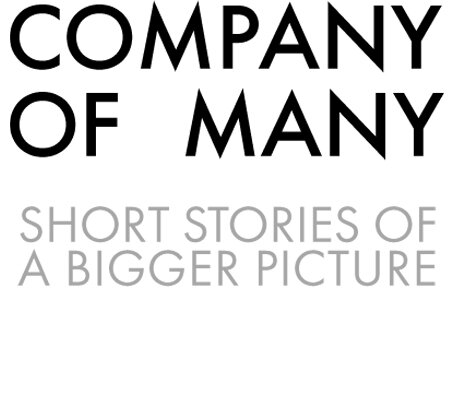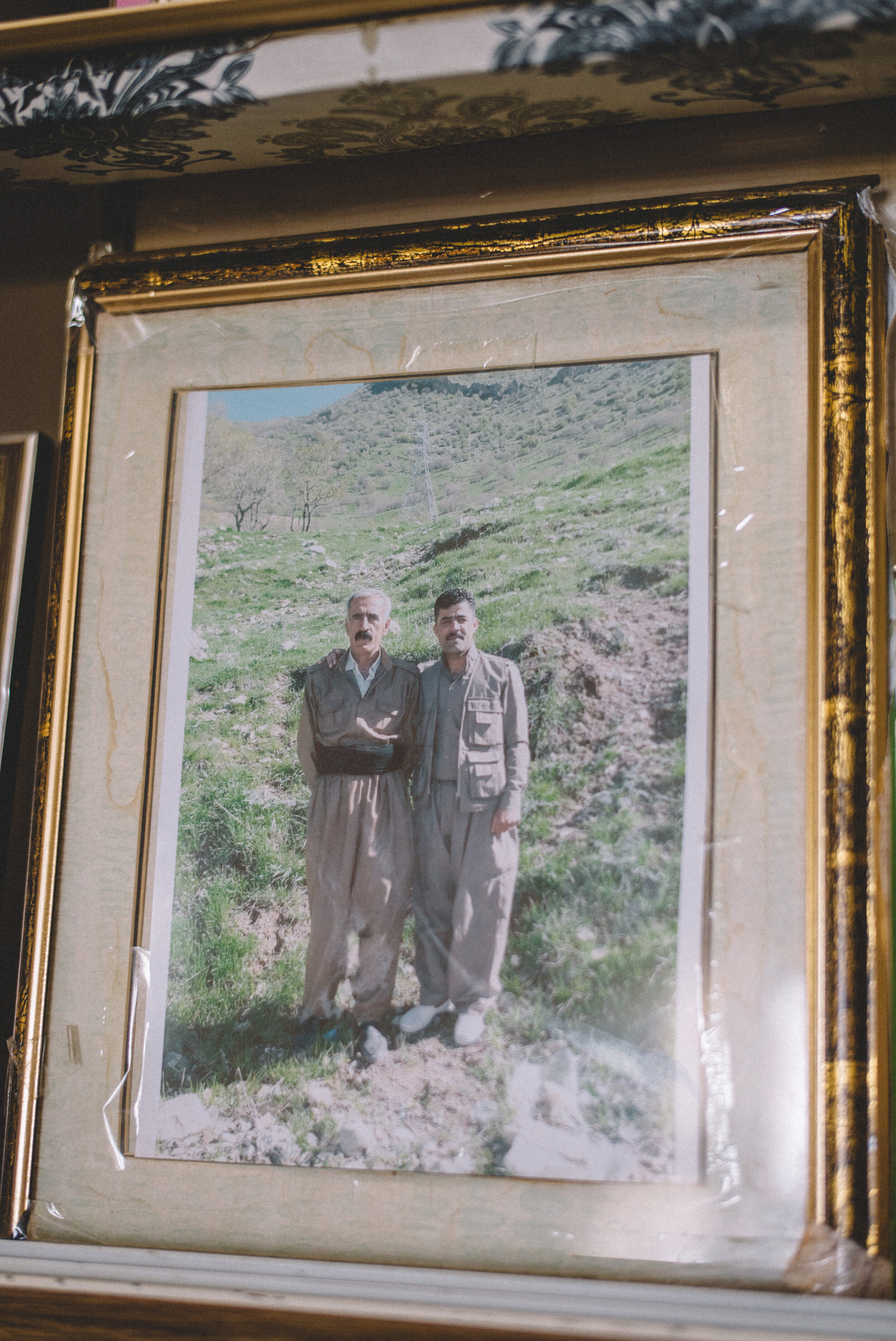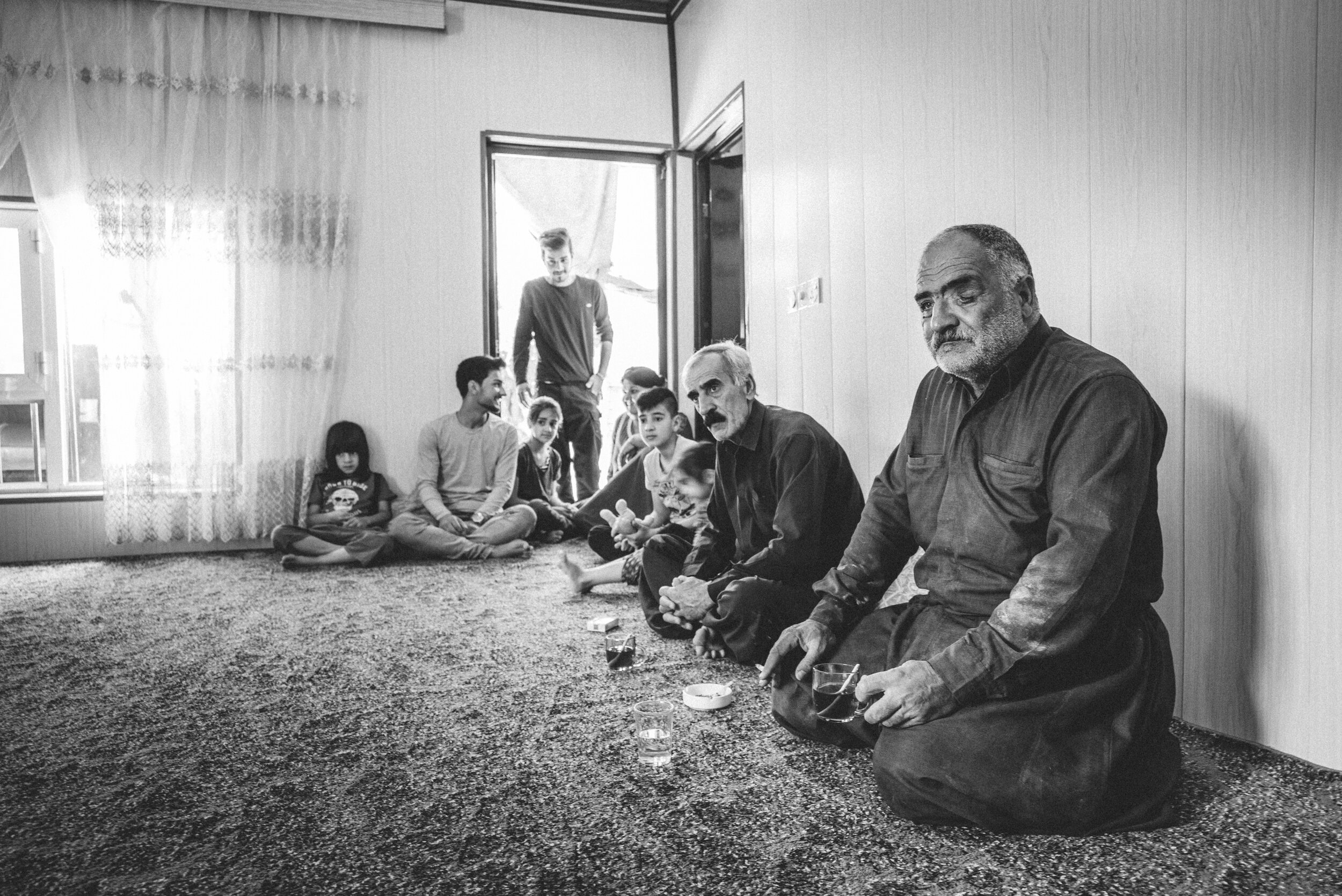Ibrahim Mustafa Mohammad,
51, 52 years old
21 Mei 2021, Haladn in the Mergapan-valley.
It is a scorching hot day when we are guided to the house of Ibrahim Mustafa Mohammad. Here in Haladn, a hamlet hidden away in one of the nooks in the Mergapan valley, the Piramagrun mountain range towers over all communal life. The village appears to drivers-by as a tiny hole-in-the-wall, a leveled oasis with great views. And it has been hard-fought and staunchly defended by its inhabitants, as we are to learn when we take place on the thick carpet in Ibrahim’s living room.
Having just returned from the building site where he is constructing a new family home, the 52-year-old has been quick and generous to accommodate us. The rest of his family comes pouring into the room, too: Ibrahim’s wife and children, a young niece and his cousin.
These two men make for a striking pair. Ibrahim is compact, age having packed some softness around his belly, and he keeps his face clean-shaven. His cousin is taller, with long legs, and has a dark moustache. Regardless of physical differences, it is as if the two of them inhabit the same body. A deep awareness of the others’ physical nearness hovers between them. These men know what the other thinks - and they know they will agree with what he feels, no questions asked. It is, they confirm, the kind of familiarity that stems from their shared bloodline, and it was certainly fostered during their time as comrades.
It was in 1987, in the final throes before the very last big anti-Kurds campaign was carried out by Saddam Hussein’s national army, that Ibrahim took a hit in the face. His warring party had fought for several hard days “against the Baathists” and thought themselves in the clear, ready to return to their base for a new rotation. They were struck by an ambush and Ibrahim fell to bullets. One shard of metal entered his face, causing him to lose an eye, and traveled through his skull, burying itself in his ear.
Ibrahim and his cousin have a simple way to talk about their life as peshmergas: “It is hard.” The decision to join the local militias, however, had been equally straightforward. “With pressure at all sides, with the keen awareness of an enemy coming in, one cannot just sit and watch. The choice to do whatever you can to protect what is yours is easy. It is actually no choice, it is the only thing to do. And however hard that is, at least we can have our freedom.”
Has the family given up their strife and their weaponry by now? There is no clear answer from either man. “Whenever there would be a new threat, I would do my duty again.” Ibrahim points to the photos that have been put on display in a built-in cabinet in the living room. In them, a younger version of himself is portrayed - slightly more fit, in a wrinkle-free uniform - flanked by other young peshmerga. Some of which have not made it out of the 1980s.
And what of his name? “I don’t think many of these guys from those pelotons know me as Ibrahim. We are all comrades. We called each other by our nicknames … If I’m honest, ‘Ibrahim’ sounds rather like an Arab’s name to me. I would rather be a Kurd, and have had a Kurdish name.”











